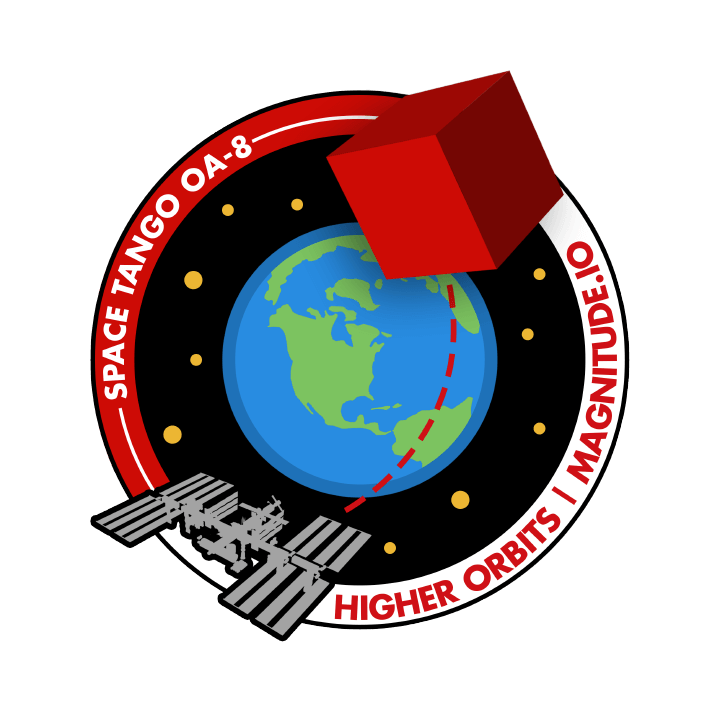
We use cookies to ensure that we give you the best experience on our website. If you continue to use this site we will assume that you are happy with it.
Ok ✕

WATTSVILLE, Va. – Space Tango, Inc. will use Orbital ATK’s Cygnus Pressurized Cargo Module (PCM), launched on November 12th at 7:19 AM EST, to host a radiation experiment once berthed to the International Space Station (ISS) for Orbital Sciences Commercial Resupply Service Flight 8 (OA-8).
Once the Cygnus spacecraft is unloaded, the TangoLab-1 facility along with an experiment conducted by DASA, a team of student winners from the Virginia Based non-profit Higher Orbits Go For Launch!, will be moved from the Japanese Experiment Module into the PCM.
“As a bonus, this will give better science to the Higher Orbits’ winners,” stated the Space Tango CEO Twyman Clements. Team DASA’s experiment utilizes the Low Earth Orbit (LEO) environment to measure the radiation flux while on ISS – and in Cygnus – and the effect of different shielding materials. “Radiation sensors will get data from two areas of the ISS,” added Clements. “And will serve as a pathfinder for moving ISS-based facilities within visiting vehicles to expand capabilities aboard the ISS.”
In addition to hosting the Higher Orbits’ experiment and the TangoLab pathfinder work, the OA-8 mission will also be delivering an additional four payloads to be housed in TangoLab-2 that was installed on the ISS in the US Lab in August 2017.
Cygnus is expected to arrive at the International Space Station November 14th. Space Tango successfully continues to commercialize microgravity thanks to the continued support from the Center for Advancement of Science in Space (CASIS) and the National Aeronautics and Space Administration (NASA).
Payloads:
<strong The Arabidopsis thaliana flight experiment is an educational experiment led by Magnitude.io. The purpose of this experiment is to study how the life cycle of Arabidopsis thaliana is affected by a microgravity environment. Specifically, the educational goals of this experiment include: 1) to successfully grow Arabidopsis thaliana in microgravity; 2) to evaluate the differences between microgravity and parallel terrestrial growth systems in classrooms; and 3) to preserve the seeds for future multi-generational microgravity growth studies.
Biological Nitrogen Fixation via Rhizobium-Legume Symbiosis
The Biological Nitrogen Fixation project is an educational/research venture led by the Higher Orbits Foundation (Leesburg, VA) and the Orbital ATK Division Winner – Team Saguaro Snakes (Gilbert, AZ) with the intent of establishing a baseline for plant growth on extra-terrestrial colonies. Microclover, a resilient and drought tolerant legume, will be grown in microgravity to determine the effect of the space environment on the nitrogen-fixation process and microgreen growth.
Effects of Microgravity on the Life Cycle of Tenebrio Molitor
The Life Cycle of the Mealworm project is an educational/research venture led by the Higher Orbits Foundation (Leesburg, VA) and the AIAA Division Winner – Team Operation Galaxy X (Herndon, VA) with the intent of studying the growth phases and reproductive cycle of mealworms in microgravity. Development of baseline data for larvae morphology and reproduction could have implications for both long-term manned space expeditions and earth based nutrition resourcing.